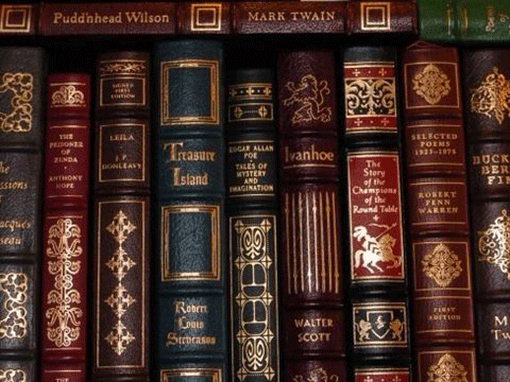The Classics: The Pride or Pitfall of Literature? One Reader’s Opinion

Alexandre Dumas. George Orwell. F. Scott Fitzgerald. Authors who have long since been considered some of the greatest writers history has to offer. These names are common throughout high school curriculums, with many of their works being required readings for students. Despite these books being praised as the highest quality of literature, many of them contain antiquated sentiments, particularly towards women and male supremacy. In the modern era of inclusivity, diversity, and equality, it brings into question whether these so-called ‘classics’ still have a place in today’s world, or if they, along with their outdated, sexist sentiments, should be pushed to the back of the shelf.
So, what exactly is a classic?
A classic book can be defined as a piece of literature that expresses a high level of artistic quality, has universal appeal, and remains relevant to future generations. Examples of ‘classics’ include Animal Farm, Great Expectations, The Great Gatsby, and The Scarlet Letter, among others. Notable authors include George Orwell, Alexandre Dumas, Charlotte Bronte, Oscar Wilde, Charles Dickens, and John Steinbeck. There are no official standards for a book to be elevated to the status of ‘classic,’ but the title is awarded based on the general consensus of the public.
Traditional authors mean traditional ideas
The question remains, however, is how many of those books actually deserved to be praised as a pillar of modern literature. Sexism runs rampant in many of those titles. Take, for instance, The Great Gatsby by F. Scott Fitzgerald. In the novel, we have three female characters: Daisy, Myrtle, and Jordan. Daisy and Myrtle are both criticized by Fitzgerald for being shallow and materialistic, while Jordan is seen as “unique” for rejecting her femininity and being more masculine. Even though Fitzgerald includes three women in his novel who play prominent roles, he reduces them to superficial echoes of people. Going even further into The Great Gatsby, Fitzgerald further reveals his sexism by commenting on Jordan’s intimate relationships, having Tom Buchanan remark, “They oughtn’t to let her [Jordan] run around the country this way,” implying that it was disgraceful for a person to engage in multiple relationships. Ironically, Buchanan himself was engaged in an affair at the time. Although it seems like a harmless comment, the statement only serves to reinforce double-standards for women that are still prevalent today. Behavior that is accepted in men, and sometimes even encouraged, is criticized in women, and this sentiment can be seen across many ‘classics,’ not just The Great Gatsby.
Some authors don’t even attempt to veil their sexism as Fitzgerald did. Alexandre Dumas included a painfully sexist line in his popular novel The Three Musketeers: “She must have spoken; she must have confessed everything—a woman is so weak!” While all readers may not pay attention to those details, Dumas’s blatant sexism casts an unpleasant tinge over the entire novel.
So… why do we read classics?
One could argue that these books present no issue, because they were written in the past, where ideas of feminism weren’t widespread. However, by promoting these titles as ‘classics,’ we are bringing them into the present. We’ve all heard the saying “Come on, it’s 2020!” in response to sexist comments. Shouldn’t that remark apply to literature as well?
Another question that should be contemplated is why are these books so widely read? Do they provide some miraculous knowledge that cannot be found anywhere else? Of course, there’s the educational standpoint; classic literature is ripe with passages primed for prose analysis and reading comprehension. Reading these types of books can improve vocabulary and writing skills. Furthermore, classic literature can provide readers with new perspectives, which benefits them as individuals by helping them to develop empathy and understanding for people in different situations.
However, the majority of the ‘classics’ were written prior to 1950, with a few exceptions. Since then, the world has been flooded with new releases and series. Who’s to say that these newer books don’t contain the same quality of content and writing as the proclaimed classics? Considering the sheer volume of the books that are available to readers now, it is only logical to assume that at least a few of them are of the same caliber as the ‘classics,’— sans the sexist sentiments.
Okay, so should we “cancel” classic literature?
Blatantly stating that all readers should immediately cross off classic literature from their lists is unwise. For starters, as problematic as some of these books are, readers could lose valuable experience by immediately nixing classics. Instead of taking radical action, people should always read critically, and be aware of the sentiments expressed in classic literature. Recognize when a character has pushed into a sexist stereotype, and be conscious of the book’s flaws. Don’t blindly praise a book simply because it has been awarded the label of ‘classic.’
Readers should also try to expand their literary horizons beyond classics. One of the main arguments for classic literature is that it provides readers with new points of views and angles at which to view the world, but one must keep in mind that even the perspectives offered by classic literature are limited. Most of the literature assigned to students in Hills are written by men, about men; only about one-third of books in the Morris HIlls curriculum were written by women. Readers should take initiative and introduce themselves to female authors, and welcome the likes of Jane Austen and Virginia Woolf into their reading mix. By reading books authored by people of different genders, ethnicities, and socioeconomic backgrounds, readers will be able to effectively widen their views, without relying too heavily on flawed classic literature.

